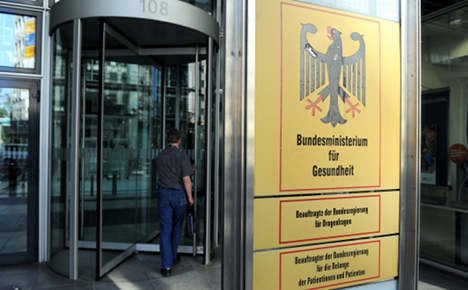The Berlin state prosecutor’s office confirmed to the Süddeutsche Zeitung that it was investigating into claims that the freelance lobbyist had been paying an employee from the ministry’s IT department to dig up secrets relevant to the nation’s pharmacies starting in 2010.
Draft bills, planned policy changes, and private emails from the inboxes of Health Minister Daniel Bahr and his predecessor Philipp Rösler were among the documents that, the Süddeutsche Zeitung said, the lobbyist obtained.
While the ministry refused to comment on the lobbyist, it did say that an member of IT staff was under investigation and that searches had taken place in their workplace.
“Paid espionage would be a new level that would leave us speechless,” said parliamentary health expert from the Christian Democrats Jens Spahn, who said that the government could handle aggressive lobbying tactics, but that recent developments were unprecedented.
It is thought that the pair were working until this year, when in November the prosecutor caught wind of the operation and searched a number of offices and private residences. A data-protection expert had recently been fired from the ministry, but it is unclear whether the cases are connected.
But ABDA, the main lobby organization for German pharmacists, the denied the spying accusations. “It was never and will never be our policy to represent the interests of the German pharmaceutical industry with a cheque book,” it said in a statement on Wednesday.
“We reject and expressly distance ourselves from such methods of obtaining information,” the ABDA said, adding that, if true, the charges must only apply to an individual incident unrepresentative of the pharmacy industry.
Bahr told the Bild daily that he was “furious about such criminal power,” and has demanded that the Berlin state prosecutor get to the bottom of the situation up as soon as possible.
DPA/DAPD/The Local/jcw




 Please whitelist us to continue reading.
Please whitelist us to continue reading.
Member comments